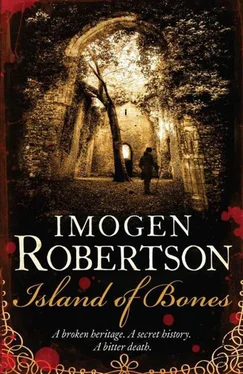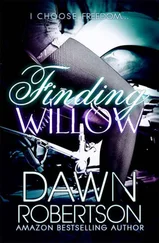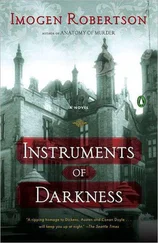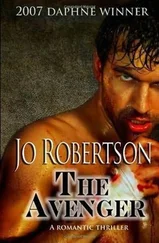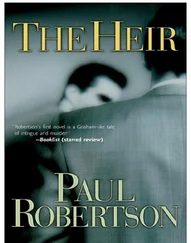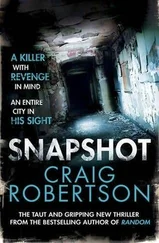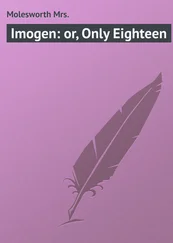Imogen Robertson - Island of Bones
Здесь есть возможность читать онлайн «Imogen Robertson - Island of Bones» весь текст электронной книги совершенно бесплатно (целиком полную версию без сокращений). В некоторых случаях можно слушать аудио, скачать через торрент в формате fb2 и присутствует краткое содержание. Год выпуска: 2011, ISBN: 2011, Издательство: Hachette Littlehampton, Жанр: Исторический детектив, на английском языке. Описание произведения, (предисловие) а так же отзывы посетителей доступны на портале библиотеки ЛибКат.
- Название:Island of Bones
- Автор:
- Издательство:Hachette Littlehampton
- Жанр:
- Год:2011
- ISBN:9780755372058
- Рейтинг книги:3 / 5. Голосов: 1
-
Избранное:Добавить в избранное
- Отзывы:
-
Ваша оценка:
- 60
- 1
- 2
- 3
- 4
- 5
Island of Bones: краткое содержание, описание и аннотация
Предлагаем к чтению аннотацию, описание, краткое содержание или предисловие (зависит от того, что написал сам автор книги «Island of Bones»). Если вы не нашли необходимую информацию о книге — напишите в комментариях, мы постараемся отыскать её.
Island of Bones — читать онлайн бесплатно полную книгу (весь текст) целиком
Ниже представлен текст книги, разбитый по страницам. Система сохранения места последней прочитанной страницы, позволяет с удобством читать онлайн бесплатно книгу «Island of Bones», без необходимости каждый раз заново искать на чём Вы остановились. Поставьте закладку, и сможете в любой момент перейти на страницу, на которой закончили чтение.
Интервал:
Закладка:
If Crowther noticed anything in her reaction, he chose to ignore it, simply walking over to the rough box and looking inside. She saw him raise a corner of the corpse’s covering and sniff.
‘Interesting. The remains seem to have been partially mummified; the tomb obviously provided an efficient seal. We must lower this to the floor, then lift its occupant out onto the table in his winding sheet. I can do nothing, leaning into his coffin.’ Crowther set his cane against the wall. ‘Shall I ask for one of the servants of the house to assist me, Mrs Westerman?’
Harriet shook out the apron she carried over her arm and started to tie it about her. ‘They are much occupied with the preparations for the garden party. Do you doubt my strength or my stomach, Crowther?’
‘Neither,’ he replied. ‘The body is highly desiccated — it should weigh very little.’
Harriet put her hands on to the coffin. It was indeed very light — the planks were thin. They placed it on the floor between them, Harriet cursing softly under her breath when a splinter caught a thread on her cuffs. She imagined explaining the damage to her housekeeper and grinned as she wondered what Mrs Heathcote’s expression would be. Next they reached forward to grasp the sheet. As she adjusted her grip, Harriet felt the slight weight of the body shift in its shroud and a shiver ran through her.
‘Mrs Westerman, I need only call-’
‘Enough, Crowther. Let us lift him.’ She was glad enough though when it was done, glad to release her grip as Crowther folded back the rough linen in which the body was wrapped.
It seemed hardly human — a leathery, twisted form. Unpleasant, unnatural, shocking even at first glance, but she did not turn away — instead, allowed herself to become accustomed to the sight. As she looked, her mind began to understand its contours as those of a human form, and it became under her eyes a corpse rather than a mass of leafmould and rotted clothing. There was the head, and that perhaps was hair framing it. Not a face, a skull wrapped in hessian and ashy paste. It was curled up on itself like a sleeping child. The head though was angled upwards, and the mouth was wide open as though the figure were screaming at someone above it. The head was a deep grey, only holes where the eyes had been. The teeth were visible though, apparently bared by the shrinking flesh around them. For a moment, as if watching from within, Harriet saw the heavy lid of the sarcophagus being shifted into place, the light disappearing with the grinding sound of stone on stone.
‘Crowther, is there any chance this person was buried alive?’
He looked up from his own examination of the body then lifted the matted cloth of the cloak and folded it back to expose the hands. They lay one atop the other in front of the dead man’s chest, shrunk into thin claws.
‘I think not. Come here.’
Harriet crouched down to examine the dead fingers by his side. ‘His nails are still intact,’ she said, and reached out to touch them.
‘Take care, Mrs Westerman. The body is delicate.’
‘I am being careful. The nails are unbroken.’
He watched her as she touched the body, lost in concentration, her smooth cheek so close to the skeletal hands that if one finger had straightened it might have brushed her hair from her face. ‘I think we can assume that if he were buried alive, he would have broken them in his struggles for release,’ he said.
‘Indeed,’ she replied, then straightened up and smiled, apparently herself again. ‘So in what manner did he die?’
‘It is often impossible to answer that question when the body is still warm, madam. I have seen deaths recorded as a result of rage, or grief. On some occasions, all we can say is that a man or woman died because they ceased to live.’ Harriet recognised the rebuke and removed herself a step, her hands crossed in front of her and looking as meek as she might without being suspected of satire. Crowther continued, ‘The position of the mouth, I think we can assume, is a result of natural processes. This man had no one to close his jaw in death.’ Harriet’s mind clouded for a moment with the memory of her husband’s body, but she thrust the thought from her.
Crowther stood back from the corpse and ran his eyes over it, noting the coloration, the flesh withered rather than rotted away as one might expect in a grave in the earth. Then the degree of degradation of the clothes, which were in a better state than they first appeared. If they were cleaned, the cloak and boots might still be almost wearable, if rather old-fashioned.
‘It is remarkable what happens to us after death,’ he said eventually. ‘It would be of interest to document the process. Of course, most human bodies are too valuable for dissection to allow us the luxury of watching them rot, but it might be possible to conduct a useful experiment with pigs.’
This was too much for Harriet’s meekness. ‘You will be the patron saint of our butcher — though he might resent seeing good meat rot, as might anyone hungry in the village. But is there any way you can say how long this body was in the tomb?’
Crowther shook his head. ‘We must make those experiments. Of course, it is easier to estimate when a body is relatively fresh. Now we can only say that the process of decay is more or less complete.’
‘We have seen the date of the snuffbox, but that only suggests he could not have been so unceremoniously interred before 1742. Though I suppose it is possible he was placed in the tomb a hundred years ago and the snuffbox was dropped in there at some later date.’
‘And tucked into his pocket by the opposite of a grave-robber? Unlikely. I do not think I can offer any definitive statement. It was more than ten years ago, I would hazard. I do not think these effects could have occurred in a lesser period.’ Crowther sighed. ‘There is much to be discovered in the area. I wonder if Sir Stephen would be interested in assisting me?’
Sir Stephen was an acquaintance of theirs in Pulborough who had an all-consuming interest in the insect world. Harriet was confused by his sudden appearance in the conversation.
‘I have noted how some insects appear in the flesh at various stages of decomposition,’ Crowther continued comfortably. ‘If Sir Stephen would be interested in making a systematic study. .’
‘I have no doubt he would, but you are neither of you in the first flush of youth. You might have to bequeath your work to others before your experiments were complete.’
The thought did not seem to concern Crowther unduly. ‘From what I have seen of my nephew, it would give me some satisfaction to leave him a field of rotting pigs.’
Harriet smiled. ‘You do not like Felix. I thought him rather intelligent.’
‘Did you? He reminds me of my brother at that age, so I suspect his temper. No, I do not like him.’
Harriet turned away from the body. ‘I like him less today. I met him this morning in the ruins of Gutherscale Hall. I think he meant to frighten me.’ She hesitated. ‘He seems to fear I might be a threat to his inheritance.’
There was a silence. ‘I shall horsewhip him myself.’
She shook her head. ‘You shall do no such thing, Crowther. I believe he regretted saying such things as soon as they were spoken.’
‘Are you quite sure, Mrs Westerman?’ Crowther asked, opening his eyes a little wider. ‘I have had the urge to horsewhip him ever since I saw the manner in which he ties his cravat.’
Harriet shook her head again and tried not to laugh.
Stephen had bolted his breakfast and was outside as soon as he could persuade his tutor away from the bacon. Mr Quince was pleased to oblige and proposed a walk through the village of Portinscale and into Keswick. ‘Mr West informs me,’ he said, tapping his guidebook, ‘that the best views of the lake are from a point on the other shore. Shall we test him?’
Читать дальшеИнтервал:
Закладка:
Похожие книги на «Island of Bones»
Представляем Вашему вниманию похожие книги на «Island of Bones» списком для выбора. Мы отобрали схожую по названию и смыслу литературу в надежде предоставить читателям больше вариантов отыскать новые, интересные, ещё непрочитанные произведения.
Обсуждение, отзывы о книге «Island of Bones» и просто собственные мнения читателей. Оставьте ваши комментарии, напишите, что Вы думаете о произведении, его смысле или главных героях. Укажите что конкретно понравилось, а что нет, и почему Вы так считаете.
